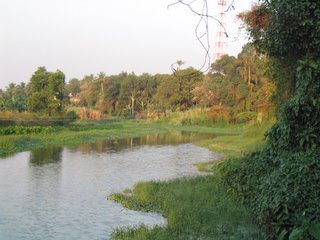Enterprising Ancestor
 Here's an excerpt of an email about my great-great-grandfather OP. He lived in Kerala about a 100 years ago :
Here's an excerpt of an email about my great-great-grandfather OP. He lived in Kerala about a 100 years ago :
[OP] could not manage with income from rice farming, he had a family of ten children, seven of them girls... In those days the government (of Travancore) had the monopoly of sales of salt and 'karappu' (ganja), besides claim to all teak and sandalwood trees whether grown on private or government land.
[OP] would not take this lying down. He imported karappu on his own without payment of dues to the government.. Although many of his progeny may call him a smuggler, there was more to it. Remember the people had a tough time and karappu would give them some relief and solace..I think that makes me the great-great-grandson of a drug dealer (and activist ?). It's hard to imagine, but maybe people back then really were a lot more tolerant about what is and isn't acceptable to be consumed.
The author of this email, and the justification of his grandfather's activities, is my remarkable, technology-embracing, 80-year-old grand-uncle. He lives in a beautiful house beside a gorgeous river (shown above when a little overrun by weeds).
read more...

